
The International Science Council (ISC) recently convened a panel discussion as part of the Open Science South Asia Network Conference (OSSAN) 2022 conference organized in hybrid mode by the Centre for Policy Research, Indian Institute of Science. The session was moderated by Jenice Goveas, Campaign Manager Future of Scientific Publishing Project, ISC who began with the following thoughts:
“Science has grown in leaps and bounds
Disruption and emerging technologies doing the rounds;
When information needs to be swiftly dissipated,
Has our publishing model become outdated?
On commercial publishers lies our over-reliance;
Stalling the progress of Open Science.
Can success be achieved by non-journal publication?
Can preprints become our final destination?
A lot remains to be understood,
To treat Science as a global public good”.
Lizzie Sayer briefly introduced the ISC and its project on the future of scientific publishing with reference to the ISC’s mission to be “the global voice for science and to work towards a world in which science is a global public good”. This means that beneficial and applicable knowledge is made freely available and accessible worldwide and can be used by anyone anywhere without preventing or impeding its use by others. She presented the ISC’s 8 Principles of Scientific Publishing, and options for reform. Highlighting how a few commercial publishers control access to much of the record of science, Lizzie noted that the ‘pay to publish model’ perpetuates the exclusion of researchers in less well-resourced settings.
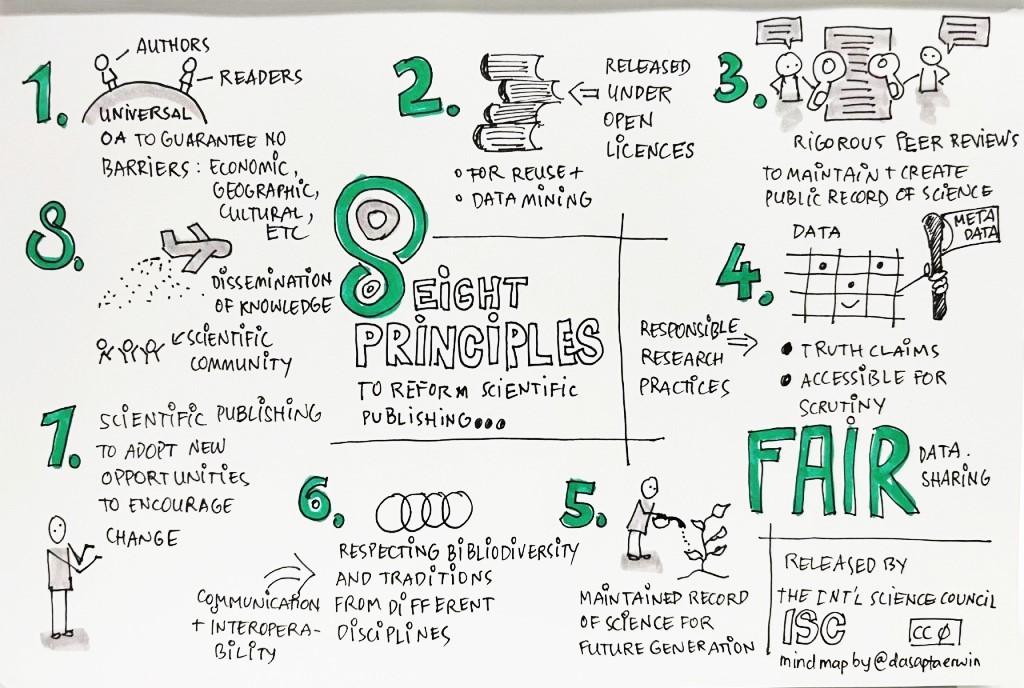
Dasapta Erwin Irawan, of the Faculty of Earth Sciences and Technology, Institut Teknologi Bandung, Indonesia, spoke on “Preprints as a way to Universal Open Access.” Using his artistic skills he presented key issues on rights retention and universal access to search, read and reuse. He gave a brief history of the RINarxiv (Indonesian Archive repository) and the funding (goverment funded) model needed to sustain the infrastructure. Addressing the current challenges of academia in the Global South he said, “It’s very hard to keep our head above water”. He spoke of three basic ingredients when posting preprints – ethics, integrity and norms – and defined what universal Open Access means to both authors and readers. According to him, “Preprint servers or repositories should be kept non-profit or as part of governmental infrastructure”, and publications should have an open license for reuse. Encouraging researchers to be part of the OA movement, he said, “No matter which journal you submit your manuscript to, make sure to self-archive the preprint and post-print version”.
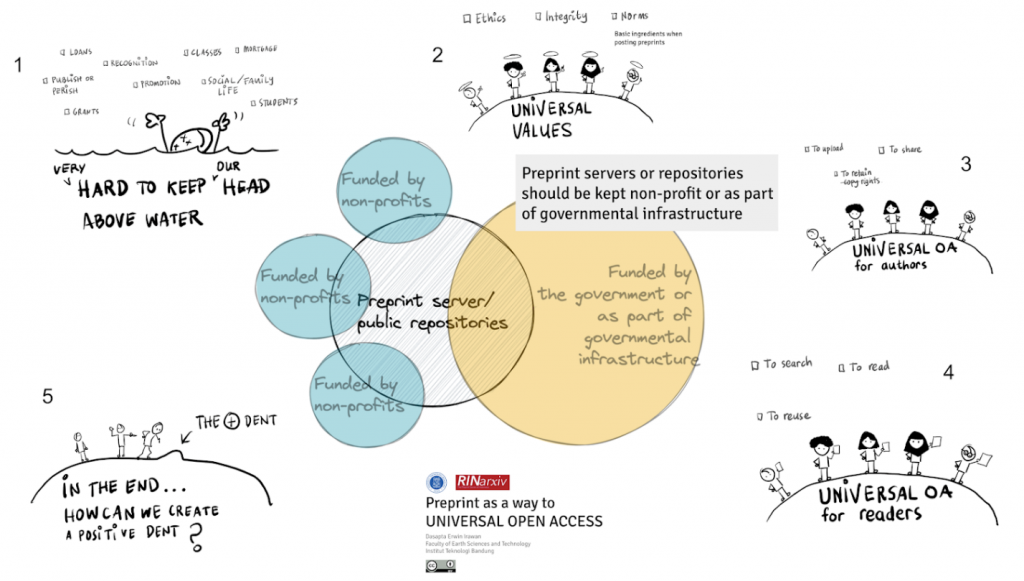
Steffano Vianello, a postdoctoral researcher in Embryology at Yilan, Taiwan presented “Preprints as a final destination – A practitioner’s view”. He shared his experiences as an early career researcher advocating for the elimination of journals, including the negative reaction from peers for submitting his entire research outputs as ‘preprints only’ and referred to ‘Pre’ in Preprints as ‘Pre-figurative’. The term ‘Prefigurative’ is used in political parlance to imply ‘creation of a world that one imagines for the future’, and is apt when referring to preprints as the future of scholarly publishing. He spoke on aspects of barrier-free publication and access, rights retention, peer review and career progression, and mentioned the challenges he faced because of the emphasis research evaluation gives to ‘high impact journals’. He guided participants on getting preprints peer-reviewed through Review Commons, and was optimistic about positive changes underway, as funders have now slowly begun to accept preprints as valid research outputs. Steffano argued that open peer review is superior and ensures higher quality compared to journal peer review, which is highly biased and secretive.
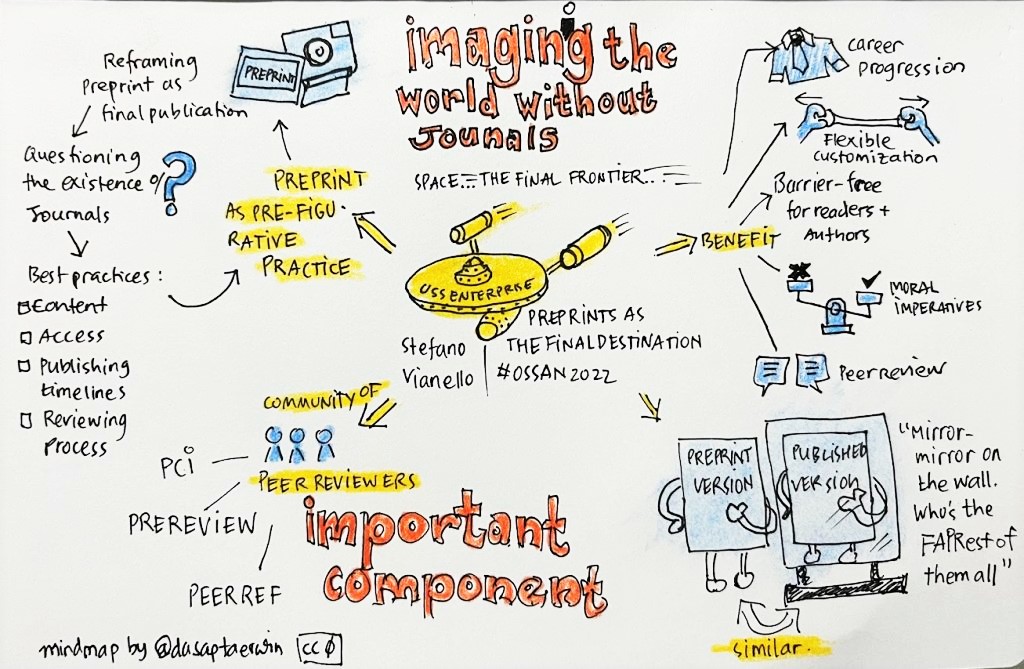
Gowri Gopalakrishna, Epidemiologist, University of Maastricht, spoke on “Can preprints become the new norm in publishing: Reflections of an epidemiologist & integrity researcher”. Using statistics indicating the exponential growth of research papers, she showed how preprints became the dominant form of publication during the COVID-19 pandemic, and its associated policy decisions, as compared to previous pandemics. Referring to ‘pandemic science’ as ‘speed science,’ she addressed the current unprecedented speed at which research is conducted, its possible crisis and the challenges of COVID medication studies. She presented both sides of the debate around making preprints the norm, with examples of flawed hydroxychloroquine and Ivermectin preprints, but also acknowledged flawed peer reviewed articles and retractions in ‘prestigious’ journals. Gopalakrishna mentioned that quick research sharing through preprints was extremely beneficial in the clinical management of COVID-19 patients. Citing Dutch survey findings on research integrity she highlighted the need to ensure quality in publishing early research outputs, and noted that low quality research exists with or without journals.
Her suggestions to response to this situation included creating distinctions between the types of early research findings and ensuring that they are not methodologically flawed; promoting scholarly critique of preprints; recognition and rewards for all forms of peer review, including in non-journal forms, such as on Twitter and other platforms; generating a critical feedback loop at every stage of research; responsible science communication that interacts directly with all stakeholders; and institutional policies that train scientists and non-scientists in respectful dialogue, communication and critical evaluation. “Scholarly critique should happen more openly and on social media, and researchers should be protected against harassment and bullying. Safeguarding and incentivizing research integrity and quality over quantity should be the collective duty of all stakeholders, especially funders”, she said. She also drew attention on the need to educate the public and science communicators that research papers are mere propositions and not the ultimate solution.
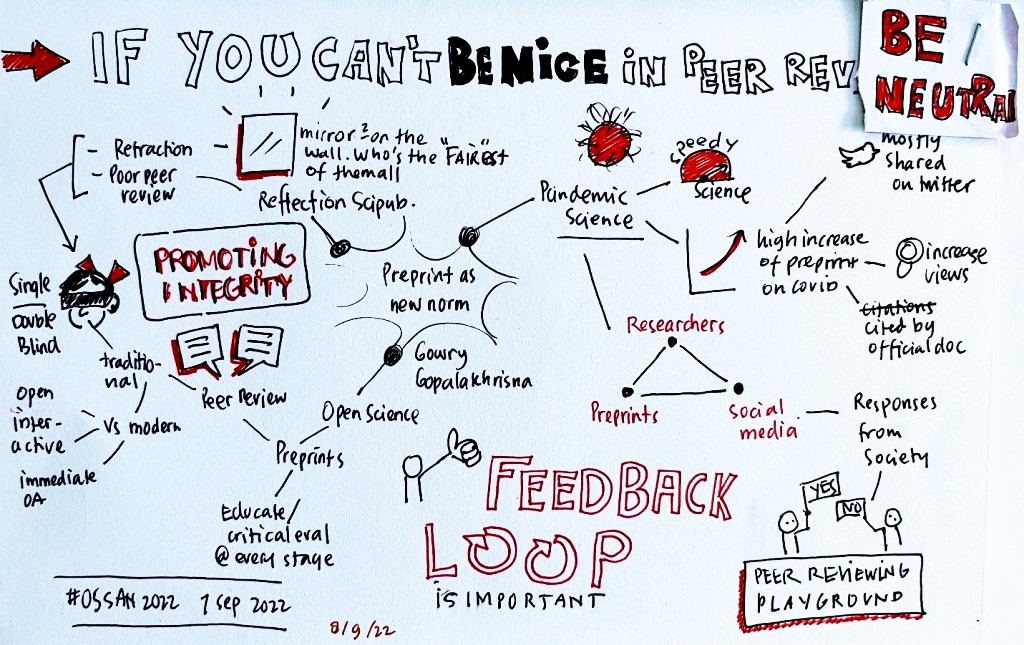
Luke Drury, Astrophysicist at the Dublin Institute of Advanced Studies, and steering group member of the ISC project on Scientific Publishing, spoke on “Preprints – a Disruptive Model for Scientific Publishing”. To him, traditional “scientific journals” are currently redundant as they do not do justice to the 3 major objectives of scientific publishing:
Drury also addressed the perceived disadvantages of preprints as not yet being formally recognized for career progression (a situation he described as ridiculous). He clarified that “preprints combined with community peer review and open infrastructures can make traditional journals obsolete”. According to him, “there is only high-quality research and not high-quality journals”. The big problem is to replace the (poor) proxy signals of prestige that “high impact” journals sell, with more reliable community-controlled markers of excellence. He mentioned that propaganda by University PR teams about research can also lead to misinformation among the public.
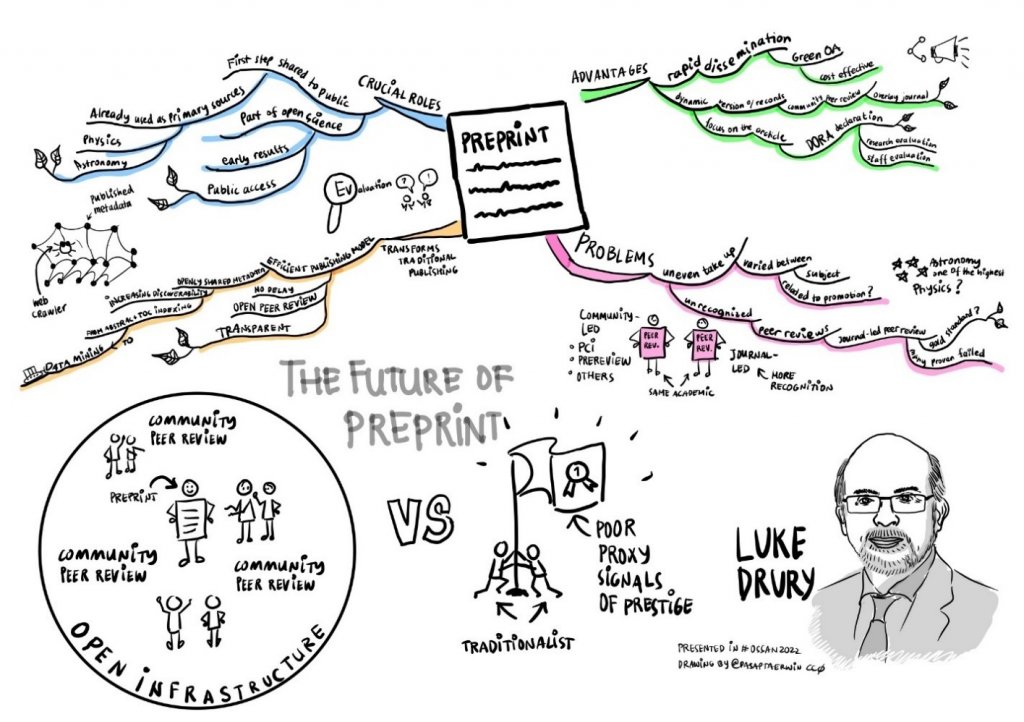
Guided by the principle of universal Open Access, the ISC is exploring alternative business models for scholarly publishing, strengthening research integrity, and engaging with global stakeholders. Find out more here.
Special thanks to Dasapta Erwin Irawan for the pictorial representation of the viewpoints of each panelist.
Image by Christina @ wocintechchat.com on Unsplash.